Organic SEO Services | Local Pro1 For Top Results
Organic SEO Services | Local Pro1 For Top Results
Today, having a strong presence on the internet is important for all businesses, big or small. One of the most effective ways to achieve this is through Search Engine Optimization (SEO), a set of strategies aimed at improving a website’s visibility on search engines like Google. Among the various types of SEO, organic SEO services are particularly valued for their ability to drive long-term, sustainable website traffic without relying on paid advertisements.
What is Organic SEO Services?
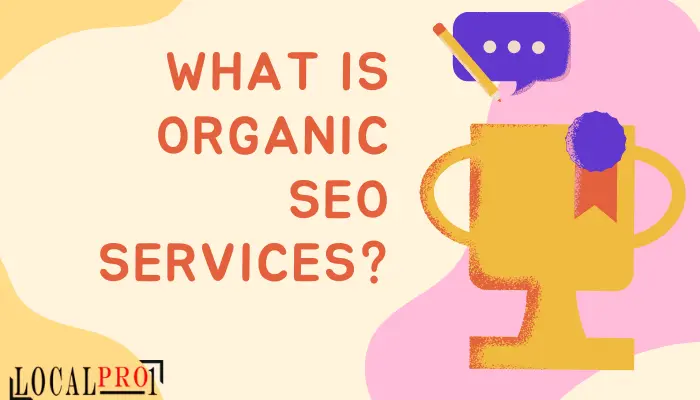
Organic SEO services focus on optimizing a website so that it naturally appears in the unpaid (organic) search results. This involves a variety of techniques and practices designed to enhance the relevance and authority of a website in relation to specific search queries. The ultimate goal is to improve the website’s ranking on search engine results pages (SERPs), thereby increasing its visibility to potential visitors.
Key Components of Organic SEO
Keyword Research
Finding the best keywords that customers use when looking for products or services. Tools such as Google Keyword Planner, Ahrefs, and SEMrush are often used to analyze and select optimal keywords.
On-Page Optimization
Ensuring that individual web pages are optimized for target keywords. This includes optimizing meta tags (title, description), header tags, URL structure, and content to be keyword-rich and user-friendly.
Content Creation and Optimization
Producing high-quality, relevant, and engaging content that satisfies user intent and includes target keywords naturally. Regularly updating the blog, articles, and other content formats to keep the site fresh and relevant.
Technical SEO
Enhancing the technical aspects of a website traffic to improve its crawlability and indexability by search engines. This involves improving site speed, mobile-friendliness, XML sitemaps, and fixing any crawl errors. Acquiring high-quality backlinks from reputable websites to increase the authority and trustworthiness of your site. Techniques include guest blogging, outreach, and creating shareable content that naturally attracts links.
User Experience (UX) Optimization
Improving the overall experience of users on your website traffic to increase engagement and reduce bounce rates. This includes ensuring easy navigation, fast loading times, and an intuitive design.
Why is Organic SEO Services Important in Digital Marketing?
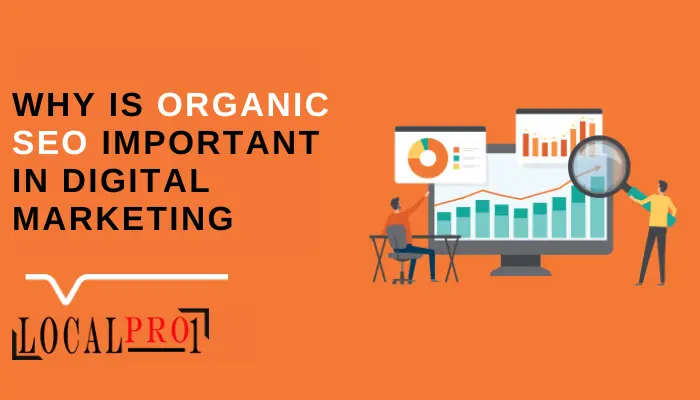
In the dynamic realm of digital marketing, Organic SEO (Search Engine Optimization) stands out as a pivotal strategy for businesses aiming to enhance their online presence and attract a steady stream of relevant visitors. Here are several reasons why Organic SEO services is crucial for digital marketing success:
Cost-Effectiveness
Organic SEO Campagins offers a high return on investment (ROI) compared to other digital marketing strategies like pay-per-click (PPC) advertising. While there are upfront costs associated with SEO, such as content creation and technical optimization, the long-term benefits far outweigh these initial investments. Once a site achieves high rankings, it can attract consistent traffic without ongoing ad spend.
Long-Term Results
The effects of a well-implemented organic SEO strategy are enduring. Unlike paid campaigns that stop generating traffic once the budget is exhausted, the improvements from SEO can last for months or even years. This sustainability makes organic SEO Campaigns a valuable long-term strategy for businesses seeking consistent online growth.
Increased Visibility and Traffic
Higher rankings in search engine results pages (SERPs) lead to increased visibility. Most users tend to click on the top results, with the first page capturing a significant majority of the traffic. By securing a top position through organic SEO, businesses can attract a larger share of potential customers actively searching for their products or services.
Enhanced Credibility and Trust
People usually trust and believe organic search results more than paid advertisements. Ranking highly in organic search ranking signals to users that the site is a reputable source of information, which can enhance brand trust and credibility. This perception can significantly influence consumer behavior and decision-making.
Better User Experience
Many elements of SEO, such as fast loading times, mobile optimization, and quality content, contribute to a better user experience. Google and similar search engines favor websites that provide a good user experience. By focusing on SEO, businesses not only improve their rankings but also ensure that their site is user-friendly, which can lead to higher engagement and conversion rates.
Competitive Advantage
In a competitive online environment, effective SEO Campaigns can provide a significant edge over competitors. Businesses that invest in organic SEO are more likely to outperform those that do not. By consistently optimizing their site and staying updated with the latest SEO trends, businesses can maintain a competitive position in their industry.
Targeted Traffic
Organic SEO helps attract highly targeted traffic. By optimizing for specific keywords related to their business, companies can reach users who are actively looking for their products or services. This targeted approach increases the likelihood of converting visitors into customers, making SEO Campaigns a highly effective tool for Seo lead generation and sales.
Insights into Consumer Behavior
SEO tools and analytics provide valuable insights into consumer behavior, including what keywords users are searching for, how they interact with the site, and what content they find most engaging. These insights can inform other digital marketing strategies and help businesses better understand and meet the needs of their audience.
Best Organic SEO Services
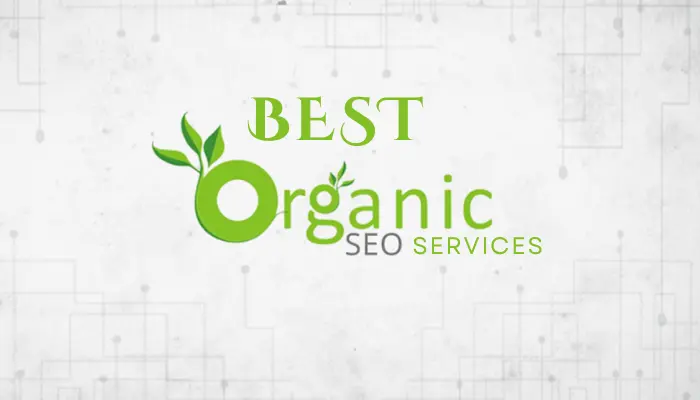
In today’s digital world, a solid online presence is vital for any business to succeed. A well-executed SEO strategy can significantly enhance your visibility, attract more visitors, and convert them into loyal customers. Choosing the right SEO services is crucial to achieving these goals. Local Pro1, leading a affordable SEO service provider, offers a comprehensive suite of services designed to optimize your online presence and drive sustainable growth.
Importance of Choosing the Right SEO Services for Your Business
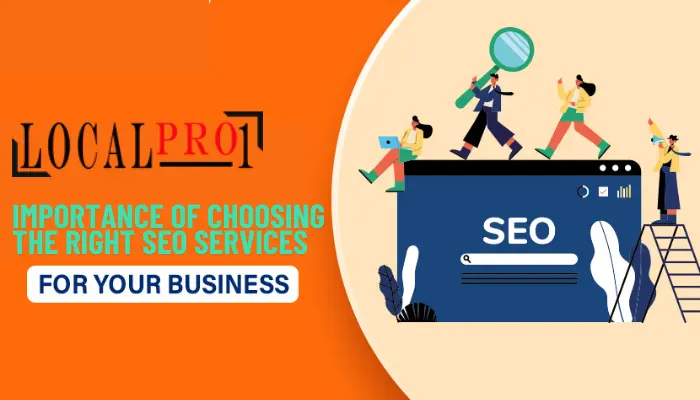
Selecting the right SEO services can make a significant difference in your business’s digital performance. Effective SEO services not only improve your search engine rankings but also enhance user experience, build brand credibility, and drive targeted traffic. Poor SEO practices, on the other hand, can harm your site’s reputation and result in penalties from search engines. Therefore, it is essential to partner with a reputable and experienced SEO service provider like Local Pro1, which understands the nuances of search engine optimization and tailors its approach to meet your business’s unique needs.
Key Services Offered by Local Pro1
Local Pro1 offers a range of specialized SEO Campaigns services aimed at boosting your website’s organic search ranking performance. Here are the key services they provide:
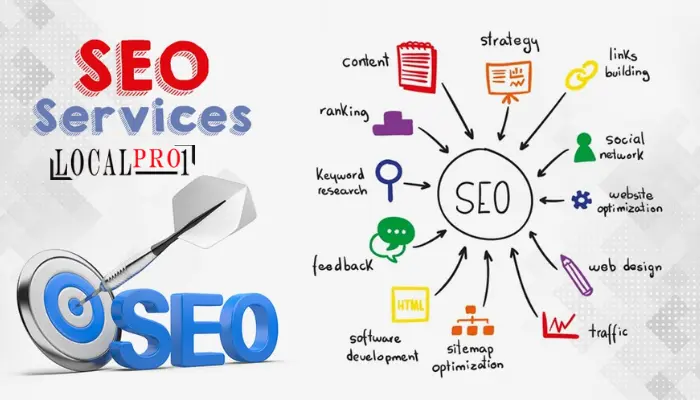
Comprehensive SEO Audit
A thorough SEO audit is the foundation of any effective SEO strategy. Local Pro1 conducts an in-depth analysis of your website traffic to identify strengths, weaknesses, and opportunities for improvement. This audit covers various aspects, including:
- Site Structure: Assessing how your website is organized and structured.
- On-Page Elements: Assessing meta tags, headings, and content relevance.
- Technical Issues: Identifying issues like broken links, crawl errors, and slow page load times.
- Competitor Analysis: Analyzing competitor strategies to identify gaps and opportunities.
Keyword Strategy and Optimization
Effective keyword strategy is crucial for attracting the right audience. Local Pro1’s keyword services include:
Keyword Research: Identifying high-performing keywords relevant to your business.
Keyword Mapping: Assigning keywords to specific pages to ensure content relevance.
On-Page Optimization: Integrating keywords naturally into your content, meta tags, and headings to enhance search engine visibility.
High-Quality Content Creation
Content is king in the world of SEO. Local Pro1 focuses on creating engaging, informative, and high-quality content that resonates with your audience. Their content services include:
- Blog Posts and Articles: Regularly updated content to keep your site fresh and relevant.
- Product Descriptions: Compelling descriptions that highlight the benefits and features of your products.
- Landing Pages: Optimized pages designed to convert visitors into customers.
Link Building Strategies
Building a strong backlink profile is essential for improving your site’s authority and ranking. Local Pro1 employs ethical link-building strategies to acquire high-quality backlinks from reputable sources. Their approach includes:
- Guest Blogging: Writing informative articles for other websites to earn backlinks.
- Outreach: Connecting with industry influencers and bloggers to promote your content.
- Content Marketing: Creating shareable content that naturally attracts links.
Technical SEO Improvements
Technical SEO makes sure that search engines can easily crawl and index your website. Local Pro1 focuses on:
- Site Speed Optimization: Enhancing page load times to improve user experience and rankings.
- Mobile Optimization: Ensuring your site performs well on mobile devices.
- Schema Markup: Implementing structured data to help search engines understand your content better.
- Fixing Errors: Addressing issues such as broken links, duplicate content, and crawl errors.
Local SEO Focus
For businesses targeting a local audience, local SEO is critical. Local Pro1 helps optimize your presence in local search results through:
- Google My Business Optimization: Creating and optimizing your Google My Business profile to appear in local searches and maps.
- Local Citations: Ensuring your business information is consistent across online directories and citation sites.
- Localized Content: Creating content tailored to the interests and needs of your local audience.
How does organic SEO works?
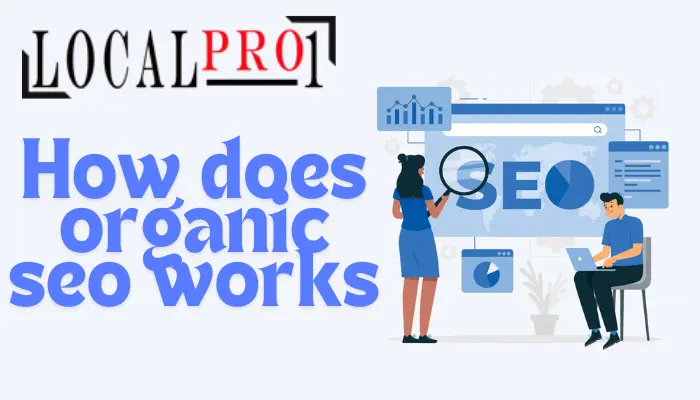
Organic SEO is a multifaceted strategy aimed at improving a website’s visibility in search engine results without relying on paid advertisements. The process involves optimizing various aspects of a website traffic to ensure it ranks higher for relevant search queries, driving organic traffic and enhancing online presence. This guide provides an overview of the organic search results SEO process and a detailed look at each step involved.
Overview of the Organic SEO Process
The organic SEO process can be broadly divided into several key phases: Initial Website Audit and Competitor Analysis, Keyword Research and Selection, On-Page Optimization, Off-Page Optimization, Continuous Monitoring and Optimization, and Reporting and Analytics. Each phase plays a crucial role in building a robust SEO strategy that delivers sustainable results.
Website Audit
Technical Analysis: Evaluates site speed, mobile responsiveness, crawlability, and indexability.
On-Page Elements: Reviews title tags, meta descriptions, header tags, and content structure.
User Experience (UX): Assesses navigation, internal linking, and overall user engagement.
Competitor Analysis: Identifies key competitors in the industry. Analyzes their SEO strategies, including keyword usage, backlink profiles, and content quality. Evaluates strengths and weaknesses to uncover opportunities for improvement.
Keyword Research and Selection
Keyword Research: Utilizes tools like Google Keyword Planner, Ahrefs, and SEMrush to identify relevant target keywords. Focuses on search volume, keyword difficulty, and user intent. Categorizes keywords into primary, secondary, and long-tail keywords.
Keyword Selection: Chooses target keywords that align with business goals and target audience. Ensures a mix of high-competition and low-competition keywords to balance immediate and long-term gains. Maps selected keywords to specific pages for targeted optimization.
On-Page Optimization
Content Optimization: Creates high-quality, informative, and engaging content that addresses user intent. Integrates selected target keywords naturally within the content. Utilizes multimedia elements like images, videos, and infographics to enhance user engagement.
Metadata Optimization: Crafts compelling title tags and meta descriptions that include target keywords. Ensures metadata is unique for each page to avoid duplication.
Internal Linking: Creates a logical internal linking structure to guide users and search engines through the site. Uses descriptive anchor texts to improve link relevancy and SEO value.
Off-Page Optimization
Backlink Building: Develops a strategy to acquire high-quality backlinks from authoritative websites. Engages in guest blogging, influencer outreach, and content marketing to earn backlinks. Monitors backlink profile to ensure the quality and relevance of inbound links.
Social Signals: Promotes content across social media platforms to increase visibility and engagement. Encourages social sharing and interaction to boost brand awareness and authority. Monitors social signals as part of the overall SEO strategy.
Continuous Monitoring and Optimization
Monitoring: Tracks keyword rankings, organic traffic, and user behavior using tools like Google Analytics and Search Console. Monitors site performance, identifying and fixing any technical issues promptly.
Optimization: Continuously updates and refines content to keep it relevant and fresh. Adapts SEO Campaigns strategies based on data insights and changing search engine ranking algorithms. Tests and implements new tactics to improve SEO performance.
Reporting and Analytics
Reporting: Provides regular reports on SEO performance, highlighting key metrics like organic traffic, keyword rankings, and conversion rates. Offers insights into the effectiveness of SEO strategies and areas for improvement.
Analytics: Analyzes data to understand user behavior, content performance, and overall site health. Uses insights to make data-driven decisions and refine SEO tactics. Tracks ROI to demonstrate the value of SEO efforts and guide future investments.
Organic SEO vs Paid SEO
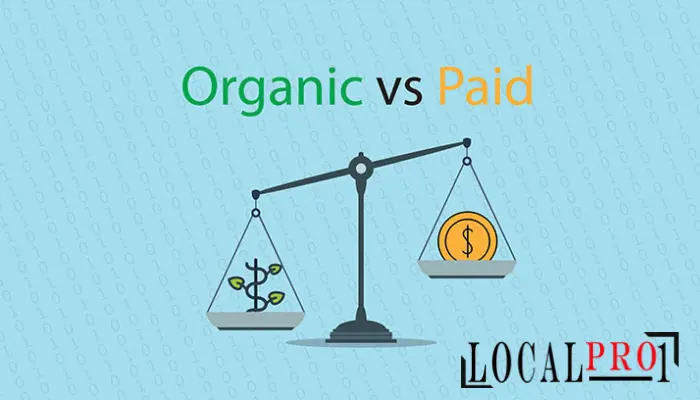
In the realm of digital marketing, businesses often face the decision between investing in Organic SEO and Paid SEO. Understanding the differences, benefits, and challenges of each can help businesses make informed decisions that align with their goals, budget, and timeline.
Organic SEO
Organic SEO (Search Engine Optimization) involves optimizing a website to improve its visibility and ranking in unpaid (organic) search engine results. This includes a combination of on-page, off-page, and technical SEO strategies aimed at enhancing the site’s relevance and authority. Organic SEO focuses on building a sustainable online presence through content creation, keyword optimization, link building, and improving user experience. It is a long-term strategy that requires continuous effort but can yield lasting benefits.
Paid SEO
Paid SEO, often referred to as Pay-Per-Click PPC advertising, involves paying for ads to appear at the top of search engine results pages (SERPs) for specific keywords. Google Ads is one of the most common platforms used for PPC. Paid SEO provides immediate visibility by placing ads in prominent positions on SERPs. Businesses bid on keywords, and ads are displayed based on the bid amount and ad quality. This strategy delivers quick results but requires ongoing investment.
Comparative Analysis Of Organic SEO vs Paid SEO
When comparing Organic SEO and Paid SEO, several key differences emerge. Organic SEO involves a long-term investment focused on sustainable growth through content creation, keyword optimization, and link building, offering credibility and lasting results. However, it requires time to see significant impact. In contrast, Paid SEO, such as PPC, delivers immediate visibility and traffic through paid ads, making it suitable for quick results but requiring continuous funding and generally resulting in lower credibility among users.
Cost
Organic SEO: Typically involves a long-term investment with costs associated with content creation, SEO tools, and agency or consultant fees. While the initial expenditure can be significant, the ongoing maintenance cost is relatively lower, and the benefits accrue over time.
Paid SEO: Involves immediate costs where businesses pay for each click on their ads. The cost can vary widely based on keyword competition and the ad budget. While PPC can quickly generate traffic, the costs are continuous, and the traffic stops when the budget is exhausted.
Sustainability
Organic SEO: Provides long-lasting results. Once a site ranks well organically, it can maintain its position with regular updates and minimal ongoing costs. The benefits of SEO efforts can continue to pay off long after the initial work.
Paid SEO: Offers short-term gains. Ads deliver instant visibility but require constant funding. When the ad spend stops, so does the traffic, making it less sustainable in the long run.
Credibility
Organic SEO: Organic search results are generally perceived as more credible and trustworthy by users. Ranking high organically indicates that the site is relevant and authoritative, which can enhance brand reputation.
Paid SEO: Ads are often viewed with skepticism as users understand that businesses pay for these placements. While they provide visibility, they do not carry the same level of credibility as organic results.
Speed
Organic SEO: Requires time to see significant results. Depending on the competition and the starting point of the website, it can take several months to achieve notable improvements in rankings and traffic.
Paid SEO: Delivers immediate results. Ads can be launched quickly, and businesses can start seeing traffic and conversions almost immediately after the campaign begins.
Click-Through Rates (CTR)
Organic SEO: Generally enjoys higher CTRs compared to paid ads. Users tend to click on organic results more frequently as they trust these links more.
Paid SEO: While it can achieve high visibility, the CTR is often lower than that of organic results due to user skepticism towards ads. However, well-crafted ads can still achieve substantial click-through rates.
Choosing the Right SEO Strategy
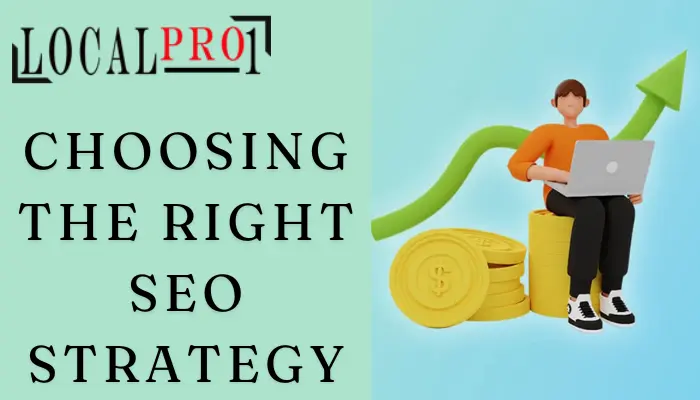
Selecting the right SEO strategy is essential for businesses aiming to enhance their online visibility, attract targeted traffic, and achieve digital marketing success. Consideration of various factors, including business goals, budget constraints, and timeline expectations, is crucial in making an informed decision. Here’s a guide to choosing the right SEO strategy:
Factors to Consider
- Business Goals: Determine whether the focus is on immediate traffic and conversions or building long-term online presence and credibility.
- Budget: Evaluate the available budget for ongoing costs (PPC) versus an initial larger investment with lower ongoing costs (SEO).
- Timeline: Decide if the business needs quick results (PPC) or can afford to wait for a gradual build-up of organic traffic (SEO).
Combining Organic and Paid SEO for Optimal Results
For many businesses, the best approach is to combine both strategies to maximize their digital marketing efforts. This integrated strategy allows businesses to achieve quick wins through PPC while building a sustainable online presence with organic SEO.
- Short-Term and Long-Term Goals: Use PPC to drive immediate traffic and conversions, particularly for new product launches or time-sensitive promotions. Simultaneously, invest in organic SEO to ensure long-term visibility and authority.
- Data Insights: Utilize PPC data to inform SEO strategies. Keywords and ad performance insights can help identify high-performing keywords and content topics for organic optimization.
- Budget Allocation: Allocate budget strategically, starting with a higher investment in PPC to gain quick traction, then gradually shifting more resources towards organic SEO as rankings and organic traffic improve.
How Much Does Organic SEO Cost?
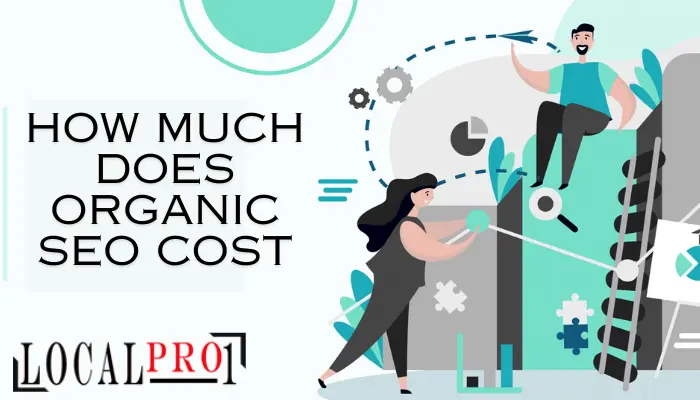
Investing in organic SEO services is a strategic move for any business looking to enhance its online presence and drive long-term growth. However, understanding the cost of organic SEO can be complex, as it depends on various factors and pricing models. This guide will help you understand the elements that influence SEO costs, the typical cost breakdown, and the value of investing in organic SEO compared to other marketing strategies.
Factors Influencing the Cost of Organic SEO
Several factors impact the cost of organic SEO services, including:
- Website Size and Complexity: Larger and more complex websites require more work to optimize, which can increase costs.
- Industry and Competition Level: Highly competitive industries may need more intensive SEO efforts and therefore higher investment.
- Current Website Performance: Websites with significant issues or that are not optimized at all may require more initial work.
- Scope of Services: The range of SEO services needed, such as content creation, technical SEO, link building, and local SEO, affects the overall cost.
- Geographic Targeting: Targeting multiple regions or countries can add to the complexity and cost of SEO.
Initial SEO Audit
An initial SEO audit is a comprehensive evaluation of your website’s current SEO status. This includes analyzing technical SEO issues, on-page elements, content quality, and backlink profile. The cost for an SEO audit typically ranges from $500 to $2,500, depending on the depth and scope of the audit.
Monthly Retainer vs One Time Services
- Monthly Retainer: Most SEO agencies operate on a monthly retainer basis, providing ongoing optimization, content creation, link building, and monitoring services. Monthly retainers can range from $750 to $5,000 or more, depending on the services included and the level of competition in your industry.
- One-Time Services: Some businesses may opt for one-time SEO services, such as a website audit, keyword research, or specific technical fixes. These services are usually billed as a one-off cost, which can range from $1,000 to $7,500.
Cost of Tools and Resources
SEO requires the use of various tools for keyword research, analytics, and performance tracking. These tools often come with subscription fees, which can add to the overall cost of SEO services. Premium tools like Ahrefs, SEMrush, and Moz can cost between $100 and $500 per month.
Cost variation Based on industry and Competition Level
Industries with high competition, such as finance, legal, and health, often require more aggressive and ongoing SEO efforts. This can significantly increase costs. Conversely, niches with lower competition may require less intensive SEO, resulting in lower costs.
Hourly Rates
Some SEO professionals and consultants charge by the hour. Hourly rates can range from $75 to $200 per hour, depending on their expertise and experience.
Monthly Retainers
Monthly retainers are the most common pricing model for SEO services, providing consistent, ongoing optimization. Retainers can range from $750 to $5,000 per month, depending on the scope of services and the agency’s reputation.
Project-Based Pricing
For specific projects, such as a website redesign or a targeted content campaign, SEO agencies may offer project-based pricing. These projects can range from $1,000 to $30,000 or more, based on the project’s complexity and scale.
ROI from Organic SEO
Organic SEO can provide a significant return on investment (ROI) by driving targeted traffic, increasing conversions, and enhancing brand credibility. Unlike paid advertising, the benefits of organic SEO can last for years, making it a cost-effective long-term strategy.
Comparison with Cost of Paid SEO and PPC
- Paid SEO: This includes costs associated with purchasing tools and resources, as well as paying for premium content and links. These costs can add up but are generally less than PPC.
PPC (Pay-Per-Click): PPC campaigns can be expensive, with costs quickly accumulating based on the number of clicks. While PPC provides immediate visibility, the traffic stops once the campaign ends, unlike the lasting impact of organic SEO.
Conclusion
In conclusion, Organic SEO is essential for building a sustainable and credible online presence. By focusing on quality content, keyword optimization, and technical improvements, businesses can achieve long-term visibility in search engines. Learn more about how Local pro1 can boost your organic rankings. Contact us today to discover the tailored strategies and expert services we offer to enhance your online visibility and drive sustainable growth.
